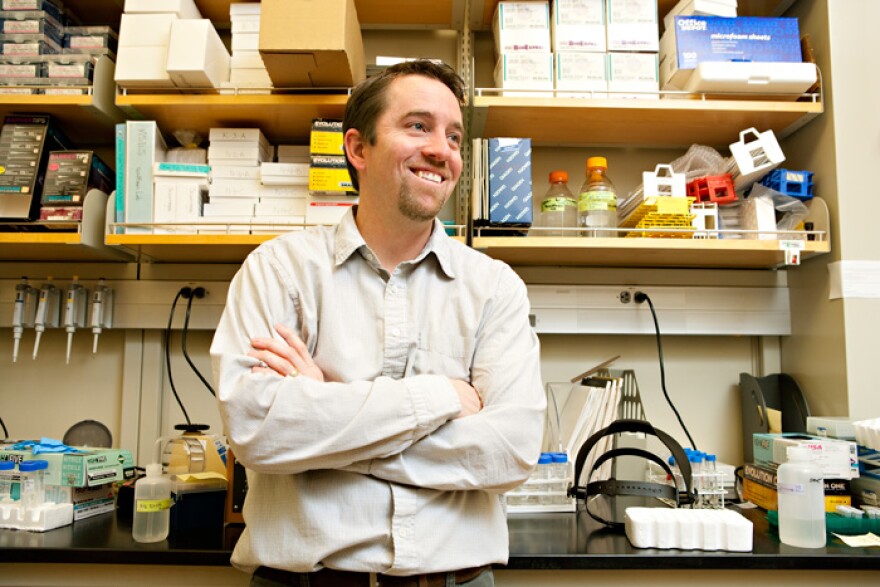Metabolic syndrome is the term used for a number of conditions that are linked together - diabetes, high blood pressure, high cholesterol and obesity. It affects up to 25 percent of adults in the United States. KUER's Dan Bammes reports new local research is showing how they're related - and how they might be treated.
University of Utah biochemistry professor Jared Rutter and his colleagues have found an enzyme mechanism in mice and rats that leads to the overproduction of fat. It could eventually lead to a drug treatment for metabolic syndrome. He's started a company called BioEnergetics to study potential drugs based on that university research.
Even if they're successful, Rutter says the drug treatment won't be magic.
"There's no drug that will probably ever take the need for ourselves to have some personal responsibility about our health," Rutter tells KUER. "Diet and lifestyle and exercise are always going to be the linchpin of any treatment program for diabetes or obesity or any of the other aspects of the metabolic syndrome."
The University of Utah has established a new Diabetes and Metabolism Center to study and treat patients with metabolic syndrome and related conditions.
The new research was published last week in the journal Cell Reports.


